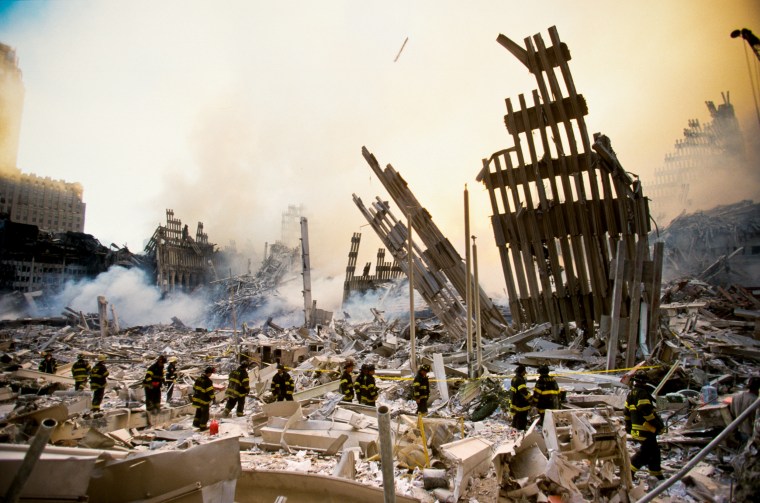New York City firefighters who rushed to the remnants of the World Trade Center after the 9/11 terror attacks are dying from health issues — and that may include serious cardiovascular diseases, according to a study published Friday.
The findings, published in the journal JAMA Network Open and conducted by doctors at the Albert Einstein College of Medicine, "suggest a significant association" between greater exposure at the World Trade Center and a higher risk of long-term cardiovascular disease.
The study points out that the cardiovascular care is not currently covered by the James Zadroga 9/11 Health and Compensation Act, meaning 9/11 firefighters receive no compensation for cardiovascular diseases from the fund.
The cardiovascular risks that appear to be linked to Ground Zero exposure include heart attack, stroke, unstable angina, coronary artery surgery and angioplasty.
For years, firefighters have been monitored for cancer and other illnesses, but this study focused on cardiovascular disease and examined 9,796 firefighters. The study’s authors said they reviewed not only who worked at ground zero but also how long they worked there, and whether they developed any cardiovascular disease in the years that followed.
The researchers found that firefighters who arrived at World Trace Center site on the day of the attacks had a 44 percent higher risk of a cardiovascular event in the years that followed, compared with those who arrived the day after.
And those who worked at the site for six months or more had a 30 percent higher risk of a cardiovascular event, compared with those who worked at the site for less time.
Since 2002, more than 16,000 firefighters who participated in rescue, recovery and cleanup operations at Ground Zero have been part of a comprehensive health screening and evaluation program by New York City and its medical institutions.
The new study urges that the program continue, saying that “the findings appear to reinforce the importance of long-term monitoring of the health of survivors of disasters.”
The Center for Disease Control and Prevention has identified digestive disorders, mental health conditions, musculoskeletal disorders and certain cancers as being linked to the fumes, fires and smoke from the World Trade Center rubble.
The study’s findings were released the same day the New York City Fire Department was scheduled to honor 22 former members who died as a result of 9/11-related illnesses.
Over 200 firefighters have their names on the wall of the FDNY's headquarters in Brooklyn as a tribute to having died from working on "the pile" — shorthand for the smoking rubble of the fallen towers.
FDNY Commissioner Daniel Nitro praised the first responders in a statement, saying that "because of their dedication and bravery, each year the already staggering loss suffered by the FDNY continues to grow as illnesses claimed the lives of those who so bravely served our city."



